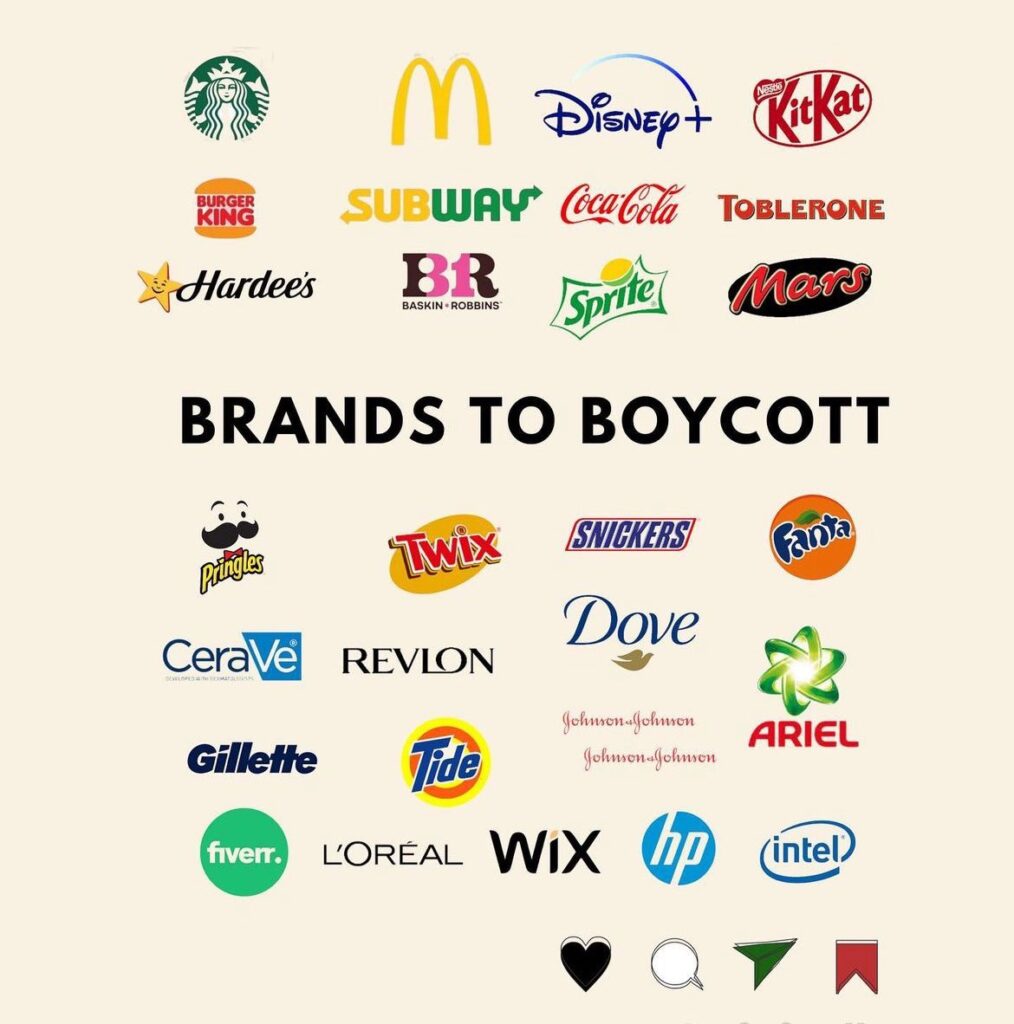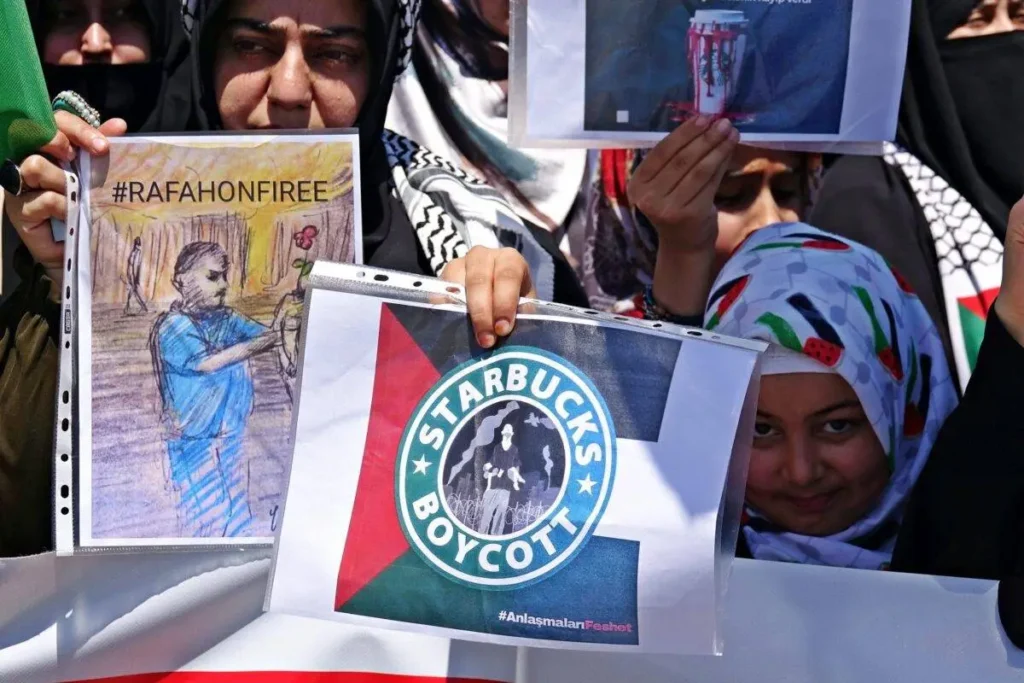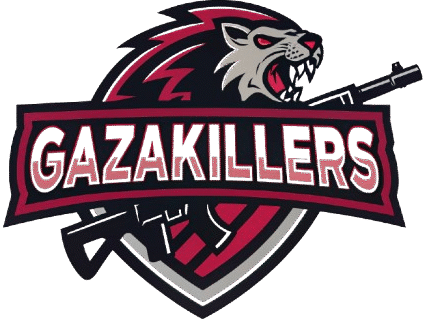Aug 2025(gazakillers.com)

When everyday brands—our go-to for coffee, snacks, fashion—become entangled with human rights abuses, our choices gain a moral weight. This article exposes how global corporations have, whether knowingly or otherwise, become complicit in genocide and occupation. We’ll explore the evidence, unpack what lies beneath glossy ads, and empower you with the knowledge to boycott strategically.
1. Fast Food Chains Fueling Conflict
- McDonald’s Israel made headlines for providing free meals to Israeli soldiers during the heightened military campaigns in Gaza. While HQ distanced itself, the damage was done: “McDonald’s faces backlash… . #BoycottMcDonalds trends,” etc. Wikipedia
- Vandalism at a Longview, Texas McDonald’s shop—tagged with pro-Palestinian graffiti—underscores the emotional toll and global outrage over real-world complicity. Houston Chronicle
2. Soda Giants: From Global Icons to Targets
- Coca-Cola faced widespread boycotts amid accusations of sourcing from manufacturing facilities on occupied Palestinian land. One Bangladeshi ad denying ties backfired, exposing deeper issues. The Washington PostIndiatimes
- Palestinians, choosing principle over familiarity, switched to Chat Cola, a local brand, sending a powerful message of resistance. euronews
- Alternative brands like Salaam Cola donate part of their profits to rebuild Gaza—offering economic solidarity, not just consumerism. Eater
3. Tech & Hospitality Platforms That Normalize Occupation
- Airbnb, Booking.com, and Expedia have been repeatedly called out for listing rental properties in illegal Israeli settlements, profiting from land stolen from Palestinians. peaceworker.orgEthical Consumer
- Amazon and Google Cloud provide essential infrastructure to Israeli defense entities—enabling surveillance and military operations. Activists respond with #NoTechForApartheid calls. just-international.org
4. Brands Extracting from Occupied Lands
- SodaStream, once in headline news, operated in a West Bank settlement—drawing sustained criticism from ethical investors and activists. Wikipedia
- Sabra Hummus, a PepsiCo–Strauss partnership, supports Israeli institutions and has been cited in leading boycott lists. CJPME – English
- Puma sponsored football clubs based in occupied territories—highlighting how sport can be political. CJPME – Englishradiohc.cu
5. Fashion and Lifestyle—Silently Complicit
- H&M reopened stores in Israel even after targeted protests and campaigns to pull out of occupied territory. Wikipedia
Why These Brands Matter—and Why Boycott Works
Consumer outcry has real-world power:

- Sales declines and CEO crises followed boycotts—Starbucks lost an estimated $11 billion in global sales amid the backlash. New York Post
- Grassroots alternatives are rising—making it clear that ethics don’t have to cost more; they can drive innovation and change.
Boycott List: Brands to Avoid
| Brand | Sector | Complicity Summary |
|---|---|---|
| McDonald’s (Israel) | Fast Food | Free meals to soldiers |
| Coca-Cola & PepsiCo | Beverages | Operations in settlements |
| Starbucks, KFC | Food & Coffee | Operations/support in conflict zones |
| Booking.com, Airbnb, Expedia | Travel | Listings in settlements |
| Amazon, Google | Tech/Cloud | Enabling military operations |
| SodaStream, Sabra | Consumer Goods | Factories in occupied territories |
| Puma | Apparel | Sponsorship of settlement-based teams |
| H&M | Fashion | Stores reopened in Israel despite protests |
Conclusion
These are not innocent brands. Their actions or inactions contribute to the erasure of Palestinian lives—making them complicit in the machinery of genocide and occupation. A boycott is not just an act of refusal: it’s an act of conscience.
Choose alternatives that support dignity, not dispossession.
Link copied to clipboard!
